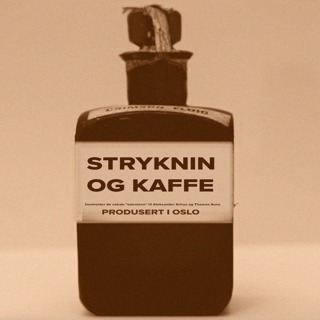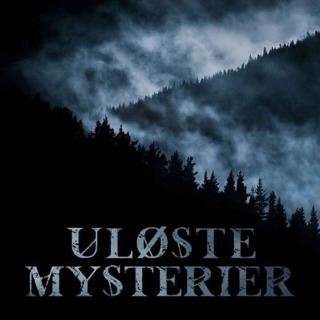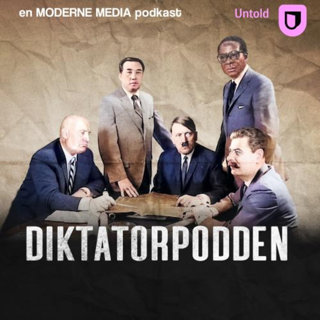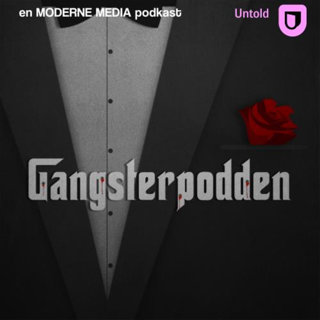
130. Pacifying Ireland
“My mission is to pacify Ireland,” Gladstone had declared when he took office as Prime Minister. This episode looks briefly at Disraeli’s behaviour as he left power, including the peerage he sought for his wife (rather than for himself). Then we move on to Gladstone’s attempts to secure peace in Ireland, first through disestablishment of the Church of Ireland, then through new legislation concerning Irish land ownership. They involved serious and exhausting battles, though they achieved very little in the way of pacifying Ireland... As the exhaustion of these struggles began to affect the government, and indeed Gladstone, Disraeli found new form and came back to the attack. Notably with one of his best known denunciations of ministers, as a series of dormant volcanoes. The pendulum was swinging back his way. Illustration: William Ewart Gladstone by Sir John Everett Millais, 1879. National Portrait Gallery 3637 Music: Bach Partita #2c by J Bu licensed under an Attribution-NonCommercial-No Derivatives (aka Music Sharing) 3.0 International License.
19 Feb 202314min

129. The Liberals get liberal
The Liberals are back, and they're being liberal. Gladstone followed Disraeli into Downing Street, and led a reforming government. So Disraeli with the Conservatives managed to reach the top of the greasy pole first, but he got only ten months before being kicked out unceremoniously by Gladstone and the Liberal Party. Oddly, though, Gladstone didn't too well personally, losing his parliamentary seat - as he had at the previous election too. He only managed to cling on in parliament by being nominated for another seat at the same time, and winning that one. His government brought in a slew of reforms followed in the military, in education, in trade union law and, as another key step on the road to democracy, in legislation to introduce secret ballots in national and local elections. This was also the time when Germany emerged as a nation, proclaimed as the Second Reich in, of all places, the Hall of Mirrors of Versailles, in defeated and humiliated France. German victory was a warning to the other powers, one that Britain failed to take seriously enough. Meanwhile, trouble was continuing in Ireland. But since pacifying that country was Gladstone’s self-declared mission, we’ve left that to our next episode. Illustration: Anton von Werner, The proclamation of the German Empire in the Hall of Mirrors of Versailles. Painted in 1885, it shows the subjects, including King William I, about to be made emperor, at their 1885 ages rather than as they were when the event took place in 1871. Public Domain. Music: Bach Partita #2c by J Bu licensed under an Attribution-NonCommercial-No Derivatives (aka Music Sharing) 3.0 International License.
12 Feb 202314min

128. The greasy pole
We're reaching the moment when Disraeli, fresh from outwitting Gladstone over electoral reform, climbed, in his own words, to the top of the greasy pole. Indeed, becoming Prime Minister after Derby resigned, was the first major milestone in a political career that Disraeli had hit before his rival. And it was the big one. Meanwhile, Gladstone had followed John Russell into the leadership of the Liberals. So the two great adversaries were facing each other in the top jobs of the two sides of parliament, Prime Minister and leader of the Opposition. And Gladstone was ready to hit back at Dizzy. The opportunity was provided by that long-running, ever-recurring sore in the history Britain, its misrule in Ireland. And this time it was Disraeli’s turn to be outmanoeuvred. Illustration: Contemporary cartoon of Disraeli, riding the horse Reform Bill, outpacing Gladstone (left) at the Derby, though warning that the result might ultimately depend on the weigh-in at the end (the next election) Music: Bach Partita #2c by J Bu licensed under an Attribution-NonCommercial-No Derivatives (aka Music Sharing) 3.0 International License.
5 Feb 202314min

127. Master class. In opposition. And opportunism
It’s time for a master class in opposition by the man who said that the role of the Opposition is to oppose. Disraeli and Gladstone, both now leaders in the House of Commons of the Liberal and Conservative parties respectively, faced off over electoral reform. And Disraeli displayed real genius in outflanking Gladstone, first to defeat him by opposing reform when the Liberals proposed it while they were in government, and then by backing it when the Conservatives took over and proposed their own legislation. So a glorious example of opportunism pursued with dazzling skill in the pursuit of power. Illustration: Dishing the Whigs, from the magazine Fun Lord Derby (left) andn Disraeli (right) have dished their Whig (Liberal) opponents by introducing a reform measure more liberal than they had. The two Conservative leaders now present the heads of the Liberal leaders to Queen Victoria. Music: Bach Partita #2c by J Bu licensed under an Attribution-NonCommercial-No Derivatives (aka Music Sharing) 3.0 International License.
29 Jan 202314min

126. Helping the poor. But not too much
The American Civil War, like the war led by Prussia against Denmark, showed that Britain was no longer the superpower that had emerged from the Napoleonic wars. In both those conflicts, Britain had views – rather changeable ones, switching from one side to the other, in the American case – but couldn’t influence the outcome. Instead, Palmerston’s government could do little more than watch events take their course. What the American war also demonstrated, however, was how British workers, in particular the workers put through great hardship by the Lancashire Cotton Famine the war had precipitated, could put principle above personal interest. Despite the pain they were suffering, they had called on President Lincoln to go right on prosecuting the war until the defeat of the South and the emancipation of the slaves. Now, that didn’t loosen any purse strings. For some more decades, relief for people who needed help would continue to mean the Poor Laws with the workhouse in the background, and whatever voluntary help people felt they could spare. However, at a time when the question of extending the right to vote was re-emerging, the principled behaviour of the Lancashire workers encouraged those backing such a move, by revealing that artisans too could reach mature, even admirable, political judgements. But the atmosphere wasn’t right in parliament yet. Besides, Palmerston was still opposed to electoral reform at least in the short term. However, when he died, and he was the last British Prime Minister to die in office, he opened the door to that debate again. Which will be the subject of our next episode. Illustration: Prince Albert and Queen Victoria in 1859, by George Milner Gibson Jerrard, after Frances Sally Day. National Portrait Gallery x197484 Music: Bach Partita #2c by J Bu licensed under an Attribution-NonCommercial-No Derivatives (aka Music Sharing) 3.0 International License.
22 Jan 202314min

125. King Cotton and his Lancashire Famine
After talking last week about wars in China and Italy, and potentially with France, in this episode we turn to the United States where one of the biggest wars of the nineteenth century was just breaking out. That was the American Civil War. We’ll see how the secessionist southern, slaveholding states, soon to call themselves the Confederate States of America, made a disastrous miscalculation, by blocking their own exports of cotton. It was a lethal self-inflicted wound, but it also caused terrible hardship in Britain where the textiles and its feeder industries had become the nation's biggest employer. Britain remained divided over the war, with many in government, including three of the most important ministers, Palmerston, the Prime Minister, Russell, the Foreign Secretary, and Gladstone, the Chancellor of the Exchequer, favoured the South. Indeed, at one point it looked as though Britain might well get involved in the war against Abraham Lincoln’s Union side. In the end, though, Britain remained neutral. One of the contributory factors had to be the extraordinarily courageous, and self-sacrificing, behaviour of the people in Lancashire who were suffering the most from the cotton embargo. When Lincoln turned the war into one against slavery, they met and wrote to urge him to keep up the fight, despite the suffering it was causing them, until the Confederates were defeated, and the slaves freed. And they even got back a reply from the President with a tribute to their spirit. Illustration: Francis Bicknell Carpenter, First Reading of the Emancipation Proclamation (detail). Public Domain. Lincoln is on the left, Seward the seated figure to the right. Music: Bach Partita #2c by J Bu licensed under an Attribution-NonCommercial-No Derivatives (aka Music Sharing) 3.0 International License.
15 Jan 202314min

124. The tide begins to ebb
When the Earl of Derby’s second government fell, Victoria tried to impose a Prime Minister of her choice on the elected politicians who felt rather differently. That, though, was obsolete thinking. In the end she had to take Palmerston back. He was now 75, though as ready for hard work as ever. He faced a number of foreign affair challenges, most of them wars. A war with China to complete successfully on behalf of drug pushers. A war to avoid with France, which he did with a little help from two non-ministers, Richard Cobden in Britain and Michel Chevalier in France. A war in Italy. A German war against Denmark. One big lesson was that the days when Britain could dictate terms to its neighbours and get its way, were gone. If any country was going to be able to play that game, the experience of Denmark showed it would be more likely to be the Germany Prussia aspired to build and lead. Britain might not have seen it yet, but the writing was on the wall for its global military power, which was beginning to ebb. Meanwhile, another war was raging across the Atlantic. It too would have a major impact on Britain. But that’s for next week. Illustration. Henry John Temple, third viscount Palmerston, in later life, by Francis Cruikshank National Portrait Gallery 3953 Music: Bach Partita #2c by J Bu licensed under an Attribution-NonCommercial-No Derivatives (aka Music Sharing) 3.0 International License.
8 Jan 202314min

123. Dizzy times
This week we’re into Dizzy times again. Disraeli, or Dizzy as he came to be known, had played a leading role in bringing down the Palmerston government in 1858. That allowed the Earl of Derby, leader of the Conservatives, to form his second administration. With Derby in the Lords, responsibility for managing the government’s affairs in the Commons fell to Dizzy, as Leader of the House of Commons, and he also became Chancellor of the Exchequer again. The Derby government brought in the legislation that ended the East India Company’s rule in India, replacing it by direct rule from London and launching the British Raj. Next, Disraeli picked up the cause of electoral reform, surprisingly for a Conservative. He realised, as few in his party had, that extending the vote might actually benefit the Conservatives, and that there was no inevitability to artisans voting Liberal. But the reform proposals failed as the Liberals, finally getting their act together, rallied enough force to defeat the government, and then did it again following a general election in which the Conservatives did well but not well enough to win an outright majority. The second Derby government had lasted sixteen months, barely more than the ten months of the first. And Dizzy had to move back into Opposition. Illustration: Benjamin Disraeli, photo from the early 1860s, printed by Henry Lenthall, after William Edward Kilburn. National Portrait Gallery Ax46252. Music: Bach Partita #2c by J Bu licensed under an Attribution-NonCommercial-No Derivatives (aka Music Sharing) 3.0 International License.
1 Jan 202314min




















